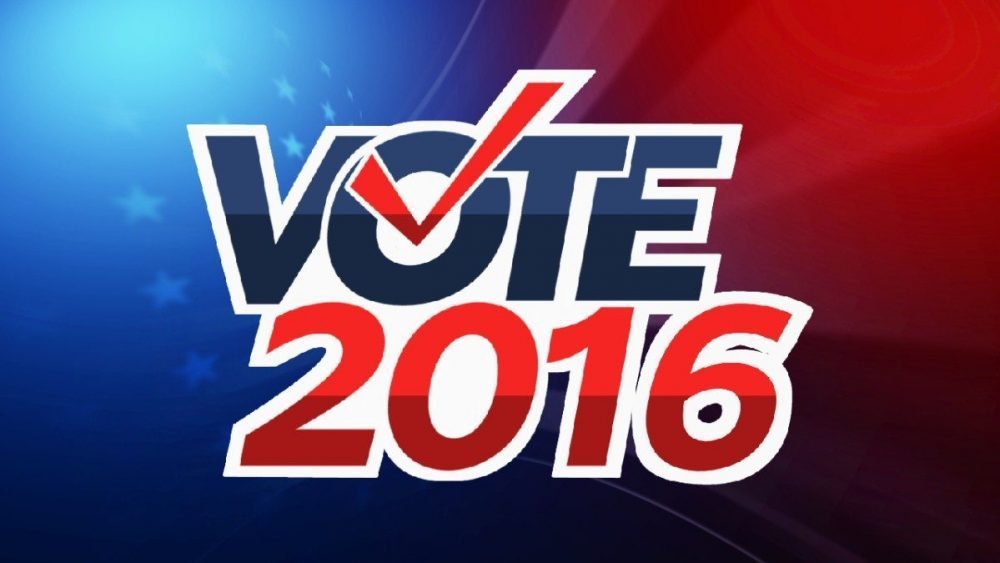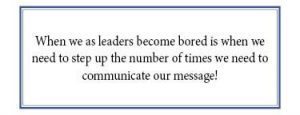TRUST = Credibility + Reliability
Perceived Self-Interest
The current political climate makes it difficult to have civil conversations about anything remotely political. Nevertheless, it’s important to find an effect way to communicate to our employees and other stakeholders what we believe is important.
But how do we break the “sound barrier”? Say too little about any issue and we appear to be fearful or complicit with whoever is voicing their opinion the loudest. Say too much and we come across as bombastic and bigoted.
This formula says it all:
TRUST = Credibility + Reliability
Perceived Self-Interest
The goal of every business owner/leader is to create great work places—great incarnated — where great products and great services can be created and delivered to clients. Great work environments are built upon trust. Trust is built up through the multitude of ways we set the tone of communicating with our teams:
- Our attitude
- Our stories
- Our interactions
- What we say
- What we don’t say
- What our digital footprint is
- What our digital footprint is not
In other words, how we choose to “show up” and the small daily deposits we make implicitly and explicitly shape what we communicate. It’s the small deposits we make that build credibility and reliability, a sense that our employees know what to expect.
What can rapidly diminish the value of any trust built is that denominator of “perceived self-interest.” The stronger the sum total of the messages we send to our employees and stake-holders that what we do is about us– about what’s in our self-interest– the weaker the trust.
Lest we feel paralyzed, what do we recommend business owners do to build trust and yet be true to themselves?
- Define the issue and communicate both the pros and cons of any issue.
- Provide as many instances as possible of different ways to understand the issue.
In order to communicate effectively, an owner/leader needs to say the same thing in different ways 7+ times. You might consider using
- Formal weekly meetings/PowerPoint presentation
- Flyers, Know Amendment 69 Before You Vote
- Video, ColoradoCare Initiative/Amendment 69
- Non partisan 3rd party published resources like Colorado Health Institute, An Independent Analysis and Ballotpedia, Colorado Creation of ColoradoCare System, Amendment 69 (2016)
- Hallway conversations, phone calls, email and social media interactions that stay “on message”
When we as leaders become bored is when we need to step up the number of times we need to communicate our message!
- Listen to whatever the person’s perspective is. You will have employees who support or oppose an issue because of personal experience or self-benefit or empathy and compassion for those who need their vote/support.
- Acknowledge that all of us have “self-interest.” Rather than pretend we are neutral, it is better to say that we do have a perspective and courageously defend it.
- Politely, civilly present your position.
- Call to action: encourage your people to take action and vote their convictions.
Let’s use the example of a Colorado ballot issue—Amendment 69– to illustrate how to tell your employees how to vote.
What the issue is:
Amendment 69 is a proposed change to the Colorado state constitution that provides a single-payer healthcare payment system, ColoradoCares, through an additional 10% payroll tax –paid 2/3 by employers, 1/3 by employees. This tax would provide approximately $25 billion per year. This system would be an independent state agency that doubles the size of the state budget and provide access to healthcare for all who have resided in Colorado at least one year.
What are the reasons to vote “Yes”:
- The amendment would effectively make healthcare a right for all Colorado residents regardless of citizenship.
- The current system leaves too many people uninsured and does nothing to address medical cost containment.
- The amendment would set the precedent for our whole nation to get on the path to universal healthcare.
- ColoradoCare would be more efficient than the current model and save billions in medical expenses. It would reduce layers of administrative costs, allow for bulk purchasing of drugs and medical equipment, and reduce fraud and duplication.
- The amendment would increase access to and quality of healthcare available to most Coloradans.
- ColoradoCare would operate as a co-operative owned by its members.
- ColoradoCare would serve the interest of its members, the residents of Colorado, not private interests.
What are the reasons to vote “No”:
- This is an amendment to the state constitution. If adopted, it will be inflexible and extremely difficult to change.
- The size of government in Colorado would double overnight. ColoradoCare will be exempt from TABOR limits on raising taxes to fund it.
- The governing structure has significant problems including concerns about accountability and the tolerance of dissenting opinions.
- Amendment 69 injects significant uncertainty into the Colorado economy. Coloradoans will pay in $2billion/year before benefits begin (no sooner than 2019). Small businesses and farmers will be disproportionately hurt by the huge income tax increase that would begin January 2017. Colorado state income taxes will become the highest in the nation and make it difficult to attract and retain businesses.
- Projections of underfunding vary widely; it would require a decrease in benefits or an increase in taxes to keep ColoradoCare solvent and able to cover all residents. (In 2014 Vermont considered and rejected a single-payer option when they projected that the taxes needed to fund the system were unsustainable.)
- Amendment 69 would decrease consumer choice in healthcare and would force doctors, hospitals and drug companies to take lower payments and make it impossible to retain them in state.
- Taxing the income of productive Coloradoans at 10 percent is a gross over-reach that is a disincentive to work.
What our company recommends:
American Business Advisors recommends that all Coloradoans vote “No” on Amendment 69. We agree with Colorado state treasurer Walker Stapleton:
While I realize that there’s a lot of uncertainty regarding healthcare coverage by many Coloradans, this is absolutely not the answer. … This will result in $25 billion in unfunded liabilities in Colorado, and the people who will bear the brunt of this cost will be our employers, especially our sole proprietors, small-business owners and the generators of our economic growth.
SOURCES:
Ballotpedia
Colorado Health Institute
Fort Collins Chamber, Paper Amendment 69
Toolkit:
Let us know what your experiences are in communicating on ballot issues with your employees.
And urge them to vote!





